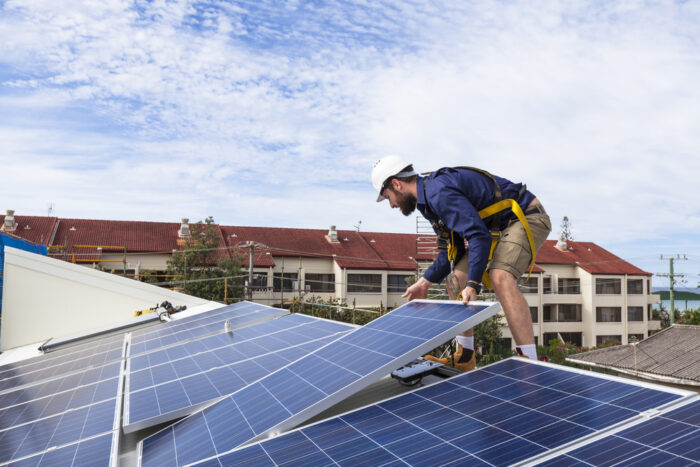No products in the cart.
Work From Home
Business Talks: Going Solar – Is Right for You?
Home Business Magazine Online
With most of the population adopting solar energy in their enterprises, you wonder if you also join the wagon. Going solar is a large investment that requires you to think critically, since it affects your core operations in one way or another. This article gives you tips on vetting if transitioning to solar is for your business. Read on!
How High Are Your Energy Bills?
Most businesses decide to utilize solar energy to reduce their electricity bills. Therefore, your bills are great determinants of whether you go solar.
Now, if most of your operations run through electricity — especially if you are in production — there is a high probability that your bills amount to several thousands of dollars each month.
Do you operate an electric vehicle (EV) station, where electric car owners come to charge their vehicles? If yes, you consider going solar. Set up solar powered EV stations for your clients and install solar panels in your business.
If you are unsure whether solar energy is sufficient to run all your operations, still utilize your grid electricity system. Use the two systems interchangeably. Either way, you still reduce your energy bills in the end, and it saves you money.
On the other hand, if you consume little electricity daily, you reconsider your decision to go solar. You might not enjoy the saving aspect of utilizing a solar energy system to the maximum.
What is Your Roof Orientation?
Your roof orientation refers to the direction in which your roof faces — in this context, with regard to the sun. The aspect to look at is how the sun hits your roof. Some orientations are much better than others are.
If your roof faces the south or west direction, it gets the maximum sun effect, unlike if your roof is in the north or east direction. However, it is good to note that installation of solar energy panels is still feasible, despite your roof’s orientation. The difference will be on the number of panels to put up, and this comes at a cost. The question is, are you willing to pay the extra cost?
What is your roof condition?
The current condition of your roof determines if installing solar energy panels is possible or not. One thing to consider is your roofing material. You cannot install solar energy panels on some materials, such as slate and wood. This is because they are too brittle, and they easily damage in the installation process. In addition, with heavy panels, your roof caves in. This inevitably leads to too many losses. If you are still adamant about installing cedar tiles as your roofing material, first replace your roof with a stronger material.
How, then, does your roof condition affect your decision to go solar? If your roof requires repair or replacement before installing solar energy panels, and you only budgeted for the solar energy installation process, then hold off on this decision. You don’t put it off completely, however. Simply postpone the decision until you acquire funds to reinstate your roof to pristine condition. This way, you spend within your budget and avoid straining your business’s finances.
Does Your Roof Have a Shadow Effect?
Shadows cast on your building determine the amount of sun that hits your roof. These shadows come from trees, buildings, or other elements next to your business that exceeds it in height. With the height, they prevent your roof from receiving maximum sunlight for your solar energy panels to be effective.
When you install solar panels where there is a great shadow effect, there is minimal output, with some shutting down in the process. This makes them ineffective and a waste of your investment.
If the shadows go over your entire roofing surface, please do not transition to solar energy. On the other hand, if it is just on a roof section, utilize the space not affected and strategically place your panels.
What is your projected return on investment?
When investing in anything, set a budget aside to implement the project. The same goes for your solar transitioning project. Now, installing solar panels requires a high initial cost, including hiring professionals and seeking permits. There is a possibility of these costs exceeding your budget. However, even so, do you anticipate a situation where you recover all the money spent during installation? Do you still end up saving money? If the return on investment is not there or is quite low, do not go solar. On the other hand, if there are high returns, what are you waiting for? Call your solar energy provider.
Conclusion
As seen, going solar requires you to approach this decision from various perspectives. These perspectives determine whether solar is a viable investment or not for your business. Put the factors discussed in this article at the forefront as you decide on whether to go solar or not.
the post Business Talks: Going Solar – Is Right for You? appeared first on Home Business Magazine.

